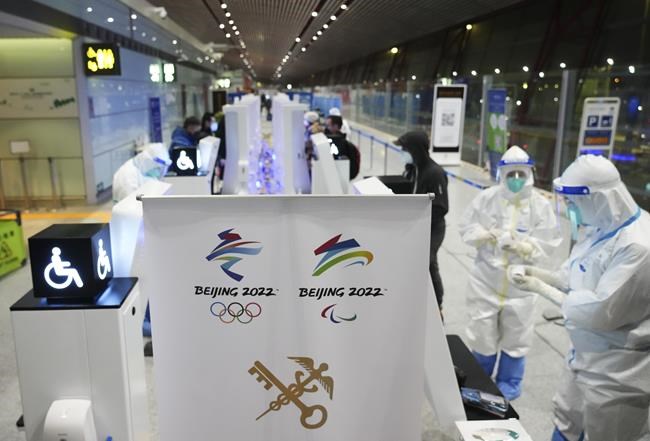Robot bartenders and hazmat suits: Welcome to the 2022 Beijing Olympics
Advertisement
Read this article for free:
or
Already have an account? Log in here »
To continue reading, please subscribe:
Monthly Digital Subscription
$1 per week for 24 weeks*
- Enjoy unlimited reading on winnipegfreepress.com
- Read the E-Edition, our digital replica newspaper
- Access News Break, our award-winning app
- Play interactive puzzles
*Billed as $4.00 plus GST every four weeks. After 24 weeks, price increases to the regular rate of $19.00 plus GST every four weeks. Offer available to new and qualified returning subscribers only. Cancel any time.
Monthly Digital Subscription
$4.75/week*
- Enjoy unlimited reading on winnipegfreepress.com
- Read the E-Edition, our digital replica newspaper
- Access News Break, our award-winning app
- Play interactive puzzles
*Billed as $19 plus GST every four weeks. Cancel any time.
To continue reading, please subscribe:
Add Free Press access to your Brandon Sun subscription for only an additional
$1 for the first 4 weeks*
*Your next subscription payment will increase by $1.00 and you will be charged $16.99 plus GST for four weeks. After four weeks, your payment will increase to $23.99 plus GST every four weeks.
Read unlimited articles for free today:
or
Already have an account? Log in here »
Hey there, time traveller!
This article was published 31/01/2022 (1345 days ago), so information in it may no longer be current.
BEIJING – The opening ceremony may be days away, but it’s already clear that covering the 2022 Beijing Olympics will be unlike anything even the most seasoned sports reporter has experienced.
Robots mixing drinks and serving up wontons, cabins the size of large closets in the press centre offering hour-long power naps and airport staff in hazmat suits are some of the unique sights at the Beijing Games, which has athletes, staff and media separated from the public in a “closed loop” to prevent the spread of COVID-19.
Some reporters have said the doors to their hotel rooms were sealed with packing tape while they awaited the results of their airport COVID-19 test, and notification of the result via phone and a noisy removal of the tape can happen at any hour.

While last year’s Tokyo Olympics also operated inside a “bubble” environment, the measures at the Beijing Games are next level.
Those who enter Beijing’s “closed loop” are tested for COVID-19 daily and are restricted to moving between approved hotels to competition venues or the main press centre.
This is the second Winter Olympics in Asia featuring functional and entertaining robots.
Robotic fish, a vacuum robot that played songs and robots that delivered water and soft drinks in their refrigerated bellies were a hit in Pyeongchang, South Korea in 2018.
In Beijing, a robotic arm in the press centre pub mixes four kinds of drinks from overhanging bottles and shakes the cocktails with gusto. The arm kindly shakes every last drop into the glass.
Your meal plate in the cafeteria can be lowered to your table from a ceiling conveyor belt.
This report by The Canadian Press was first published Jan. 31, 2022.












